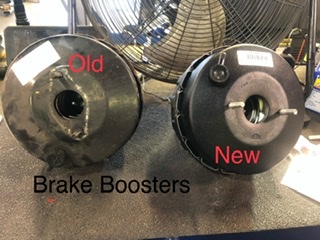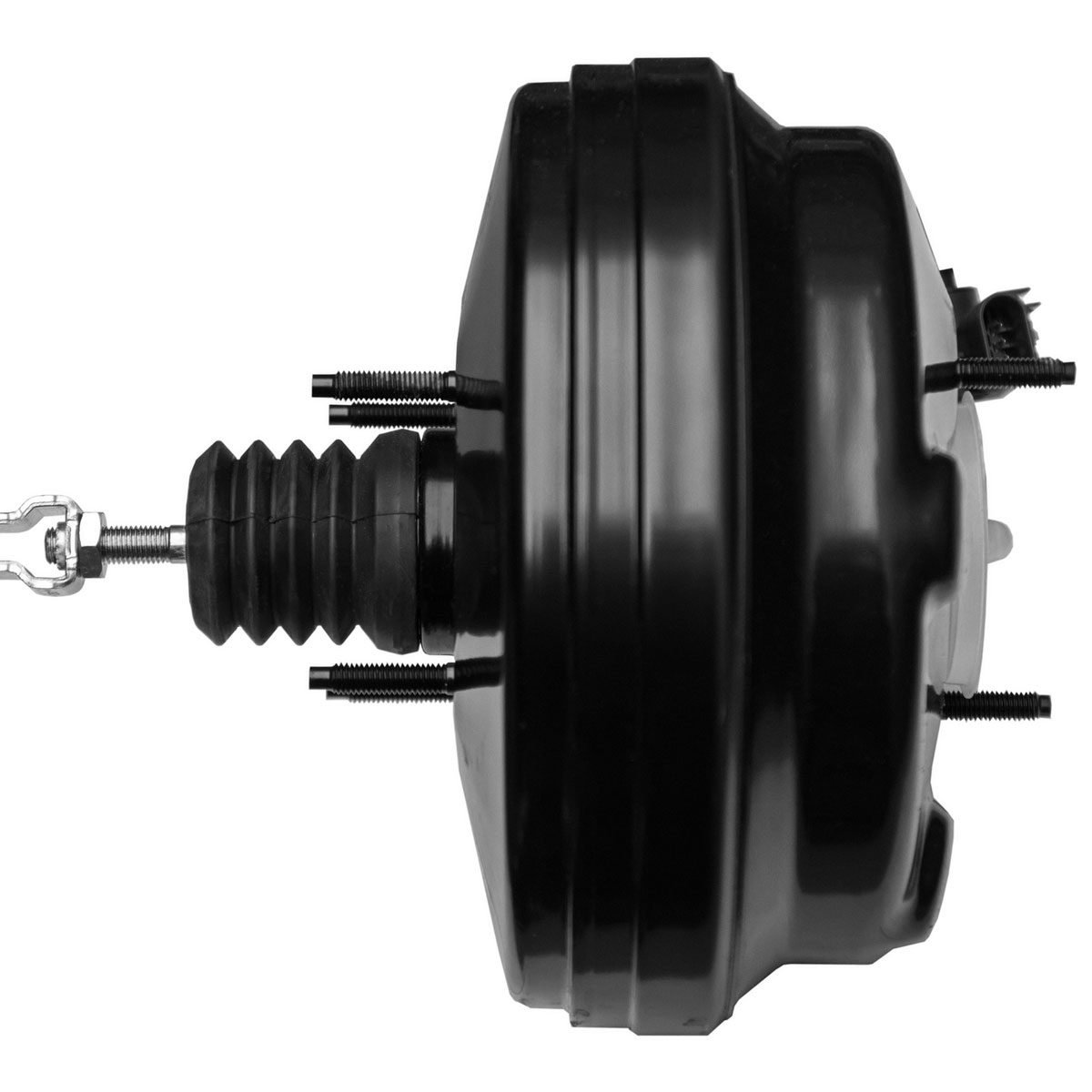As an Amazon Associate, I earn from qualifying purchases at no extra cost to you.
What are the Symptoms of a Bad Brake Booster?
Symptoms of a bad brake booster include a hard brake pedal and increased stopping distance. Other indicators may include a hissing sound when applying the brakes and an illuminated brake warning light on the dashboard.
It is important to be aware of these symptoms as a faulty brake booster can significantly impact the safety and performance of your vehicle. Having a well-functioning brake system is crucial for safe driving. If you notice any of these signs, it is important to have your vehicle inspected by a qualified mechanic to address the issue promptly.
We will discuss in detail the symptoms of a bad brake booster, the potential causes, and the necessary steps to rectify the problem. Understanding and recognizing these symptoms can help ensure the reliability and efficiency of your vehicle’s braking system, ultimately contributing to a safer driving experience.
Common Symptoms
Spongy Brake Pedal
A spongy brake pedal can indicate a bad brake booster, causing a soft and mushy feel when applying brakes.
Increased Stopping Distance
An increased stopping distance may occur due to a faulty brake booster, leading to compromised braking efficiency.
Hard Brake Pedal
A hard brake pedal could signify a problematic brake booster, resulting in difficulty in pressing down on the brakes smoothly.

Credit: www.ricksautoservice.org
Unusual Behaviors
Brakes Dragging
One of the symptoms of a bad brake booster is brakes dragging. This occurs when the brakes fail to release properly, leading to a sensation of the vehicle dragging or slowing down. It is important to address this issue promptly as it can lead to overheating of the brake components and potential safety hazards.
Brake Fluid Leakage
Brake fluid leakage is another abnormal behavior indicating a faulty brake booster. Leaking brake fluid can compromise the performance of the braking system, leading to a loss of hydraulic pressure and decreased braking effectiveness. It is essential to inspect and repair any signs of brake fluid leakage as soon as they are detected.
Brake Noise
Unusual brake noises, such as squealing, grinding, or hissing, can signal a malfunctioning brake booster. These noises may indicate worn-out brake pads, rotor damage, or hydraulic issues, all of which can be linked to a faulty brake booster. It is crucial to have the braking system inspected if any abnormal noises are noticed during braking.
Brake Warning Light
Another sign of a bad brake booster is the illumination of the brake warning light on the dashboard. This indicates a potential issue with the braking system and should not be ignored. When the brake warning light is illuminated, it is essential to have the vehicle inspected by a qualified technician to identify and rectify the underlying problem.
Also Read: What are the Symptoms of a Bad Abs Module?
Impact On Vehicle
Reduced Brake Efficiency
When the brake booster is malfunctioning, it can lead to reduced brake efficiency, causing the vehicle to take longer to come to a complete stop. This can be particularly hazardous in emergency situations where prompt braking is essential.
Difficulty In Stopping The Vehicle
A faulty brake booster can result in difficulty in stopping the vehicle, as it requires more effort to apply the brakes. This can lead to longer stopping distances and potential collisions if the issue is not addressed promptly.
Safety Concerns
The symptoms of a bad brake booster pose safety concerns for both the driver and other road users. These issues can compromise the overall safety and control of the vehicle, increasing the risk of accidents and injuries.

Credit: www.familyhandyman.com
See Also: Is 7/32 Tread Depth Good Or Bad?
Other Related Symptoms
Other Related Symptoms:
Engine Stalling
If your brake booster is malfunctioning, your engine may stall as a result of the added strain on the engine from the faulty booster.
Vibrations While Braking
Vibrations felt while braking could indicate a bad brake booster, as it may be causing an imbalance in the braking system.
Inconsistent Brake Response
An inconsistent brake response where sometimes the brakes feel soft and other times too firm is a common sign of a failing brake booster.

Credit: www.wikihow.com
Conclusion
Recognizing symptoms of a bad brake booster is crucial for road safety. Addressing issues promptly can prevent accidents and ensure smooth driving. Regular maintenance and prompt repairs are key to maintaining optimal braking performance. Stay vigilant and responsive to your vehicle’s warning signs for a safe driving experience.


